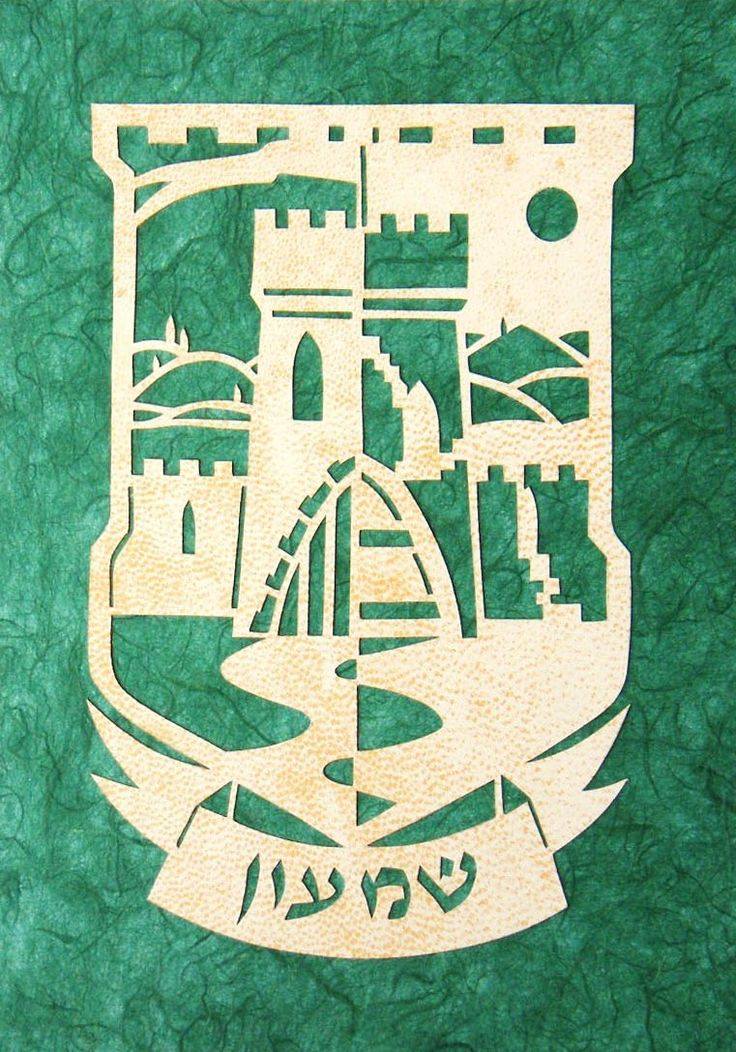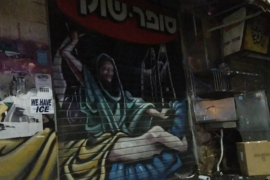In the course of his life, our father Yaakov faced many great hardships. Again and again, he encountered difficult hurdles as a behavioral pattern emerged for how he learned to deal with adversity. A careful analysis of Yaakov’s life reveals that from an early age he coped with challenges not by confronting them head on but by utilizing his wits in order to circumvent them.
Although we learn that Yaakov had been conceived before Esav (these twins were obviously fraternal), he did not fight to be born first. He instead grabbed hold of Esav’s heel and followed him out from their mother’s womb. As they grew older, he never once outright demanded the birthright but instead obtained it from his brother for some stew. Due to Esav’s ferocious reputation, this likely seemed the most sensible strategy. And when it finally came time to secure Yitzḥak’s blessing for worldly success, Yaakov did not proclaim that it was rightfully his but instead disguised himself as his brother in order to successfully obtain the brakha through deceit.
After fleeing to Ḥaran, Yaakov honed this method of dealing with adversity in the house of Lavan. In truth, he had no choice. Each time Yaakov accused Lavan of deception, he would fail to obtain the justice he sought. Lavan would easily double talk his way around Yaakov’s accusations and it was only by going behind his father-in-law’s back that Yaakov was ultimately able to escape with his family.
It appears that all of these experiences built within Yaakov a natural instinct to avoid direct confrontation. He was able to accomplish a great deal more through an indirect approach and therefore saw little need to face challenges head on. Upon his return to Eretz Yisrael, however, combined with the blessing he had already obtained from Yitzḥak, reality was destined to change.
Yaakov was caught alone by the angel representing Esav’s spiritual essence and was left with no choice but to fight. They battled until morning and although he was severely injured, Yaakov emerged victorious. The event transformed him into Yisrael, forebear of the Israeli nation charged with bringing the light of HaShem to mankind.
This transformation should have ingrained within Yaakov the understanding that conflict must now be dealt with directly and no longer avoided or circumvented as before. While it was natural for Yaakov to deal with adversity through evasion, Israel must overcome antagonists through confrontation.
Yaakov was now home in Eretz Yisrael and the patriarchal blessing was in full effect. With this new reality should have come the understanding that Israel represents HaShem’s Ideal in this world and that evil must now be directly engaged and uprooted. But although his objective situation had changed, Yaakov’s mentality had not. While his name no longer symbolized grabbing onto his brother’s heel but rather wrestling with the Divine, his personality had still not adjusted to the change.
Yaakov, along with his wives and sons, kneeled before Esav. Throughout Scripture we see the notion of Israel bowing before our enemies as a desecration of G-D’s Name and a diminution of how His Ideal is perceived in our world. In fact, the Holy of Holies would later be built in the tribal territory of Binyamin precisely because he had not yet been born at the time of the encounter and therefore had not defiled himself by bowing to Esav. From a human perspective, Israel’s honor is actually the honor of the Kadosh Barukh Hu and our submission to other nations casts a veil over HaShem’s Divine Ideal for mankind (although the holy Zohar defends Yaakov by stating that he was actually kneeling before HaShem and not his brother, it is still likely that others present perceived him as bowing to Esav).
Employing the teaching that the deeds of our ancestors carry within them signs for future generations, the Ramban identifies Yaakov’s bowing to Esav as the root cause of his Hasmonean descendants forging a diplomatic agreement with the Roman Empire. The covenant made Israel subordinate to Rome (identified by our sages as the offspring of Esav), which not only eroded Judean independence but also led to the eventual destruction of Jerusalem.
“In my view, this also hints that we ourselves initiated our own fall into the hands of Edom, for the kings of the Second Temple period entered into a covenant with the Romans.” (Ramban on B’reishit 32:4)
Because Yaakov and his family at the time constituted the whole of Am Yisrael, bowing to Esav was a desecration of G-D’s Name. The Rashbam teaches in Parshat Vayeira that the binding of Yitzḥak resulted from HaShem’s disapproval over Avraham’s pact with Avimelekh. A similar idea can be brought in Vayishlaḥ regarding Yaakov bowing down to his brother. The abduction and rape of Yaakov’s daughter Dina by the Ḥivite prince of Shkhem can be viewed as a direct consequence of Yaakov’s submission to Esav. This can be easily understood on a practical level, as the Ḥivites must have known of Yaakov humbling himself before his brother and therefore naturally assumed they could dishonor his family without repercussions.
All events, large and small, carry a Divine purpose beyond what can initially be perceived. Only through the horrific experience of Dina’s rape did Israel receive the opportunity not only to perform an act of tshuva for bowing to Esav but also to deal with the new offense in a manner that would correct even the transgression that had produced it.
Two of Yaakov’s sons, Shimon and Levi, offset their family’s error with a reprisal at Shkhem that brought the Hebrew family back to the path of their great grandfather Avraham. When his nephew Lot had been taken captive, Avraham took his students and waged a relentless war against the four mightiest kingdoms of his time. While Yaakov’s life experiences might have made it difficult for him to take such action, his children had no such psychological limitations.
“And it came to pass on the third day, when they were in pain, that two of Yaakov’s sons, Shimon and Levi, Dina’s brothers, each took his sword and they came upon the city confidently, and killed every male.” (B’reishit 34:25)
Our sages comment on the above verse:
“Dina’s brothers: Was she then the sister of these two [only] and not the sister of all the tribal ancestors? She is called by their name, however, because they risked their lives for her sake.” (B’reishit Rabbah 80:10)
Targum Yonatan even teaches on B’reishit 36:6 that “Esav left Eretz Yisrael because he feared the military prowess that Yaakov’s family displayed in Shkhem.”
By sanctifying G-D’s Name through their heroism and self-sacrifice, Shimon and Levi rectified their family’s sin and expunged the humiliation of bowing before Esav. It is also noteworthy that the tribal banner of Shimon became a picture of Shkhem to commemorate the action performed in that city.
“The Children of Israel shall camp, each man by his banner according to the insignias of their fathers’ household, at a distance surrounding the Tent of Meeting shall they encamp.” (Bamidbar 2:2)
“Every prince had an insignia. Each had a banner bearing the color of a precious gem on Aharon’s heart… The prince of every tribe had a banner of the same color as his precious gem… Shimon’s gem was emerald and his banner was green, bearing a picture of [the city of] Shkhem.” (Bamidbar Rabbah 2:7)
“Shkhem: For their valor and self-sacrifice at Shkhem. Although Levi was with him, Shimon was older and the main protagonist. This is his praise for having zealously dealt with sexual sin.” (Maharzo on Bamidbar Rabbah 2:7)
Shimon and Levi valiantly avenged their sister Dina, which at the time constituted avenging Am Yisrael. In reward, HaShem publicized the deed on Shimon’s banner. While later commentators agree with the rescue of Dina and avenging her rape, there are differing opinions as to whether it was proper to kill not only the guilty prince but also every male inhabitant of the city. In Hilkhot Melakhim, the Rambam argues that the people of Shkhem were liable to death for the crime of not setting up a court to judge their prince.
“A gentile who transgresses one of the seven Noaḥide laws shall be killed by the sword. For this reason all the inhabitants of Shkhem were liable for the death penalty. Shkhem [the prince] kidnapped. They [the people] observed and were aware [of his deeds], but did not judge him.” (Hilkhot Melakhim 9:14)
The Ramban, in his commentary to B’reishit 34:13, disagrees with the Rambam and argues that while Shimon and Levi were justified in killing the rapist prince and even his scheming father, they were wrong to also slay the male inhabitants of Shkhem, who had done nothing wrong to Yaakov’s family and could not be held accountable for failing to control the actions of their own rulers. While the Ramban does acknowledge that the inhabitants of the city were frequently guilty of violating other Noaḥide laws, he states that it was not the role of Yaakov’s sons to execute them for these crimes.
The Maharal of Prague, in his Gur Aryeh commentary to B’reishit 34:13, offers an explanation that transcends the Rambam-Ramban disagreement while at the same time encompassing aspects of each position. He agrees with the Ramban that since the people of Shkhem feared their prince, they were prevented from bringing him to trial and therefore not guilty of violating that particular Noaḥide law. He does, however, also agree with the Rambam that Shimon and Levi were justified in killing the entire city. Yet the Maharal offers an entirely different justification:
“Since both the Shkhem Canaanite tribe and Yaakov’s family were already considered ‘nations’ or ‘collectives’ (as was mentioned in their agreement to circumcise, ‘and we will dwell with you, and become a single nation’ instead of two nations), it was permitted to fight against them according to our laws of war, when a nation goes forth against another nation as a collective. And though it is written that before such a war, one must make the offer of peace, that is only when they did not [already] harm Israel. But here, where they violated [a Hebrew girl], even though only one of them did it, he is part of a collective, and one can take vengeance against all of them. And such is the case for all wars, as it says, ‘Take vengeance for the children of Israel against the Midianites’ (Bamidbar 31:2), etc., where even though only a few of them did [evil], it makes no difference because they are from the same nation… and such is the case for all wars.”
In his HaEmek Davar commentary on B’reishit 34:25, the Netziv of Volozhin argues against Shimon and – to a lesser extent – Levi in much stronger language than the Ramban. But the Netziv’s comments elsewhere (B’reishit 9:5 & D’varim 20:8) seem to indicate that while he does not see justification in the action at Shkhem, he does share the Maharal’s general position on Israel’s conduct during war.
While great luminaries down through the ages debate the attack on Shkhem, it is clear that Yaakov was displeased with the behavior of his sons. While he never actually put forward a principled argument against the deed, he did express fear that the surrounding nations would seek revenge against his family.
“Yaakov said to Shimon and to Levi, ‘You have discomposed me, making me odious among the inhabitants of the land, among the Canaanite and among the Perizzite; I am few in number and should they band together and attack me, I will be annihilated – I and my household.’ And they said, ‘Should he treat our sister like a whore?’” (B’reishit 34:30-31)
Shimon and Levi responded not by addressing the practical ramifications of their actions but rather by stating a moral fact. The rape of Dina was a humiliation to Yaakov’s family and a desecration of G-D’s Name. In one statement, they made clear the necessity of showing their neighbors that Israel holds to a higher standard of morality – a line that cannot be crossed. Because the narrative ends with the sons getting the last word, it could be assumed that Yaakov accepted their argument. As for his concern regarding the surrounding nations, the Torah specifically shows that HaShem protected Yaakov’s family.
“They set out, and there fell a Divine terror on the cities which were around them, so that they did not pursue Yaakov’s sons.” (B’reishit 35:5)
This hidden miracle of the nations fearing Yaakov’s family teaches that we should never fear conflict over issues of justice, morality or the manifestation of HaShem’s Ideal for this world. A fundamental tenet of the Hebrew worldview is that there are values worth fighting for. This is what drove Avraham to war against the mighty empires of his day, and it is what motivated Shimon and Levi to restore honor to the house of Israel in the wake of terrible tragedy.
Part of the blessing bestowed by Yitzḥak on Yaakov is that Israel can externally don the “hands of Esav” to advance the “voice of Yaakov” national mission without being internally corrupted by the use of such violence. Unlike man-made religions that require a clear separation between holiness and statecraft, Israel has the ability to produce holy fighters and successfully fight wars in a fashion that actually adds to our kedusha.
Only by internalizing the transformation Jews experience when returning to our borders and becoming part of the nation of Israel can we fulfill our historic mission and help mankind to ultimately arrive at a new era in which all of humanity will live in harmony and mutual respect under the unifying canopy of HaShem’s Divine Truth.





